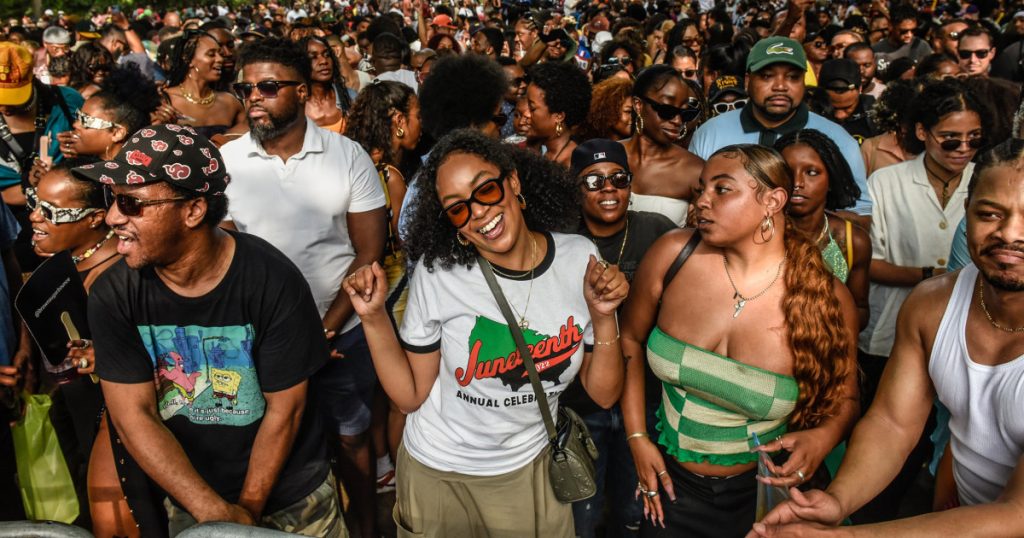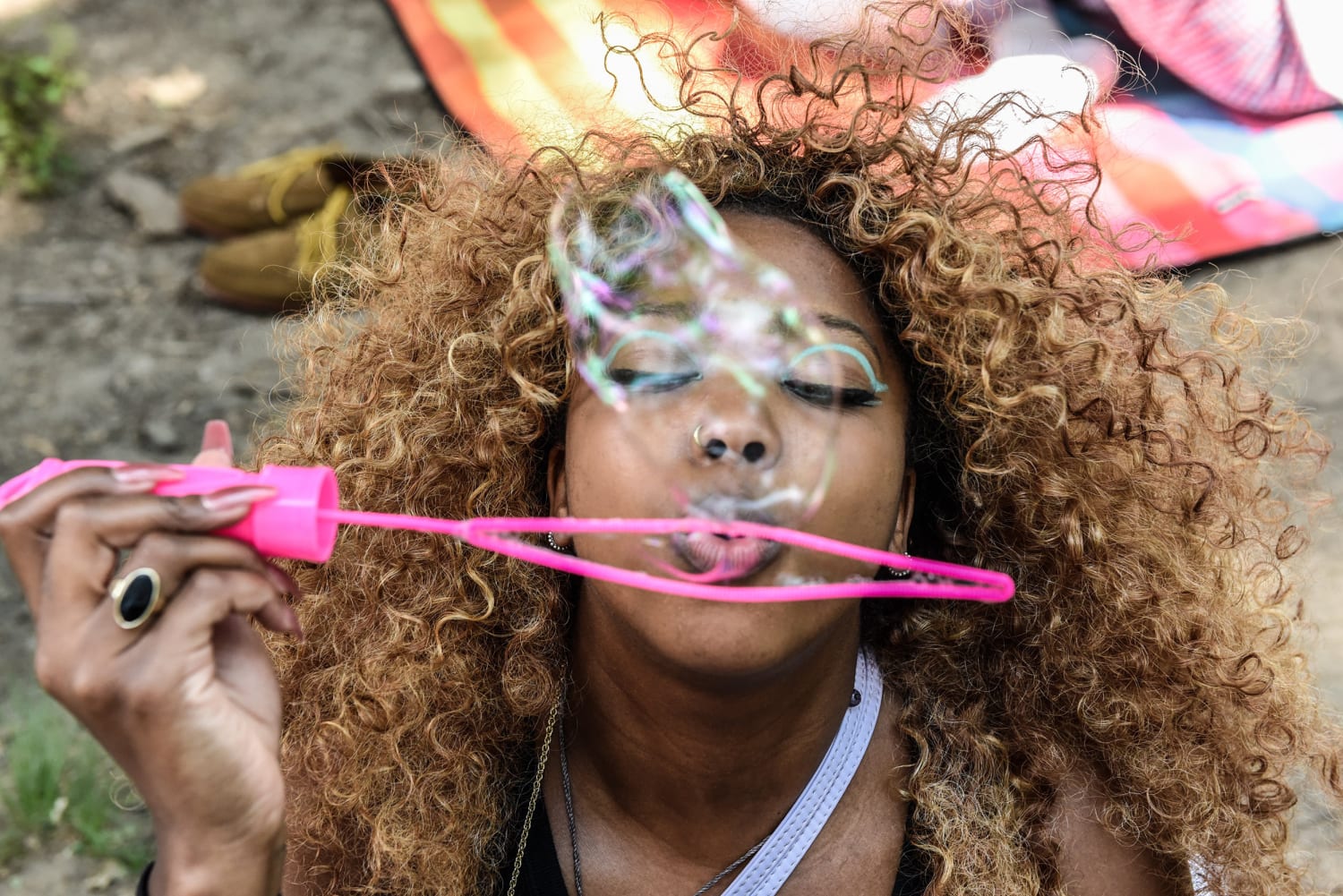

Americans from coast to coast celebrated Juneteenth this weekend, taking to the streets to commemorate the end of slavery after the Civil War.
Black people in the U.S. have observed Juneteenth since the late 1800s. In the summer of 2021, after nationwide protests over systemic racism renewed interest in Juneteenth, President Joe Biden signed legislation that made June 19 a federal holiday.
The holiday honors the day in 1865 when enslaved people in Galveston, Texas, learned they had been freed — 2½ years after President Abraham Lincoln issued the Emancipation Proclamation.
The celebrations included cookouts, parades, line dancing, card games and other outdoor activities.
In some communities, people took time to acknowledge how the brutal legacies of slavery continue to shape modern-day realities.
The Rev. William J. Barber II, the human rights leader, said Sunday, in his final sermon at Greenleaf Christian Church in Goldsboro, North Carolina, that the holiday is rooted in a painful historical moment.
“It was a terrible day,” Barber said. “For it was a day folk found out they had been lied to. They got two extra years of bondage. When they found out, they were not happy. They decided that now we gotta fight, sure enough, for full citizenship.”
Recognizing that the past is never really past, the Rev. Lorn Snow of Detroit said at Sunday Mass: “The struggle’s still not over with. There’s a lot of work to be done.”

 Latest Breaking News Online News Portal
Latest Breaking News Online News Portal




